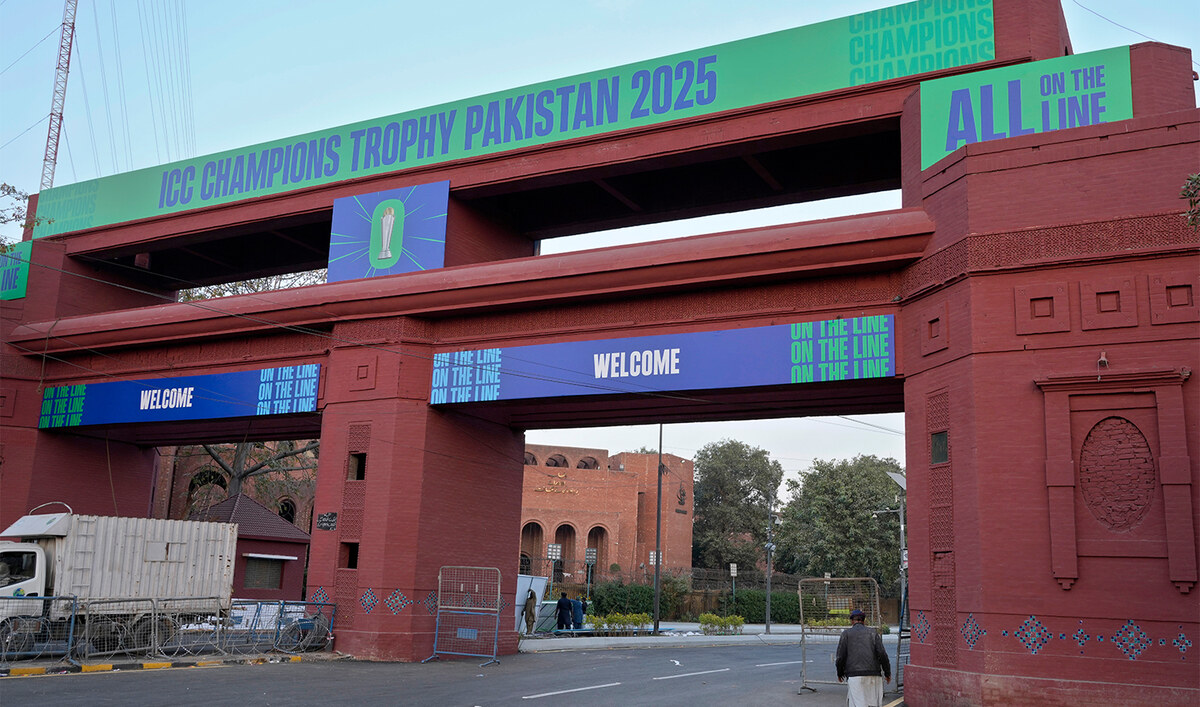ISLAMABAD: Pakistan Deputy Prime Minister Ishaq Dar on Monday urged the Organization of Islamic Cooperation (OIC) to dissuade Israel and its supporters from reviving the war on Gaza, while at the same time opposing the proposals for the expulsion of Palestinians from their country.
The statement by the Pakistan deputy premier came during his briefing to the OIC Group on Pakistan’s priorities on the sidelines of a United Nations Security Council (UNSC) meeting in New York on multilateralism and global governance.
Israel’s war on Gaza, which began after the Oct. 7, 2023 attacks by Hamas, has killed more than 48,000 Palestinians and displaced almost all of Gaza’s 2 million population by laying waste to swathes of neighborhoods, schools and hospitals.
Dar said the Gaza war has had catastrophic consequences for the Palestinian people and the OIC countries should work collectively to preserve the interests of Palestine and the objectives of the Arab and Muslim world.
“Pakistan supports the pursuit of diplomacy to preserve the Gaza ceasefire agreement and the negotiation and implementation of its second and third phases,” he said.
“We must dissuade Israel and its supporters from reviving the war in Gaza, and ensure adequate humanitarian assistance to the people of Gaza, including by preserving the essential role of UNRWA (United Nations Relief and Works Agency for Palestine).”
Dar’s statement came amid a six-week truce announced on Jan. 19 between Hamas and Israel that ended 15 months of war, involving the gradual withdrawal of Israeli forces from central Gaza and the return of displaced Palestinians to the north.
He said the OIC must “rigorously oppose” proposals for the expulsion of the Palestinians from their country. It followed remarks by United States (US) President Donald Trump and Israeli PM Benjamin Netanyahu about the relocation of Palestinians to Egypt, Jordan or other countries, which have been rejected by Saudi Arabia, Egypt, Jordan, Pakistan and other nations apart from being condemned by international rights groups.
“Simultaneously, we should take steps to end Israel’s campaign of violence and displacement in the West Bank. We should clarify our common position of opposition to the plans of Israeli extremists to annex the West Bank,” Dar said. “We must initiate concrete steps to secure the two-state solution.”
Palestinian territory – encompassing the Gaza Strip and West Bank, including East Jerusalem – has been occupied by Israel since 1967. Pakistan does not recognize Israel and has consistently called for an independent Palestinian state based on “internationally agreed parameters
Dar welcomed an agreement brokered by France and the US last November that led to a cessation of hostilities in Lebanon, but said Israel’s continued military actions in south Lebanon violate the agreement and threaten to reignite the conflict. He said Pakistan supports the stabilization of Syria through an “inclusive, Syrian-owned and Syrian-led political process,” facilitated by the UN.
He also spoke about a number of African issues of interest to the OIC that are under consideration in the Security Council, including Libya, Sudan, Sahel and Somalia.
“Pakistan will work with other OIC and African countries to promote effective solutions to these situations where the challenges of international terrorism, organized crime, external intervention and the exploitation of national resources are all intertwined,” the deputy PM added.
Speaking about Islamophobia, he said it remains a “persistent and alarming challenge” for the world, demanding urgent action.
“The OIC Group must also remain actively engaged in formulation of the Secretary-General’s Action Plan to combat Islamophobia, ensuring sustained progress and impact,” Dar added.
Pakistan urges OIC to dissuade Israel and its backers from reviving Gaza war
https://arab.news/4eytg
Pakistan urges OIC to dissuade Israel and its backers from reviving Gaza war

- The statement comes amid a six-week truce between Hamas and Israel that ended 15-month war, which has killed over 48,000 Palestinians
- Deputy PM Ishaq Dar says Pakistan supports diplomacy to preserve Gaza ceasefire deal and negotiations for its second and third phases

















